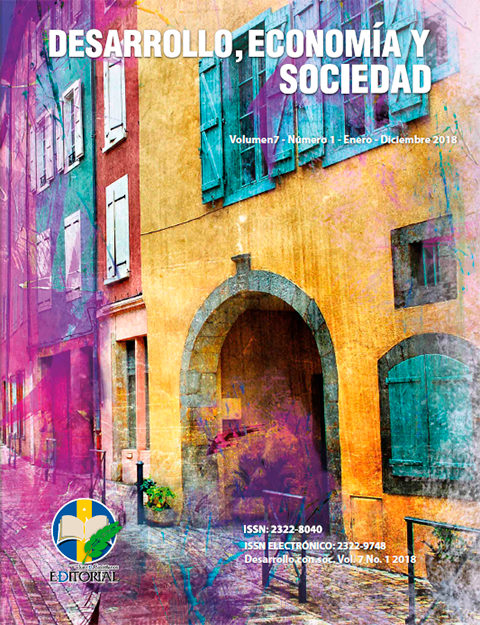The incidence of information and communication technology (ict) in project-based learning appropriation and its similitarity facing traditional teaching
DOI:
https://doi.org/10.38017/23228040.627Keywords:
project-based learning, ICT, CEE, traditional educationAbstract
In the field of education, different pedagogical models have been developed which integrate more active participation of learners; one of them is Project-Based Learning (PBL). This article shows the results of a study that identified the ICT impact on the appropriation of the PBL methodology with regard to the use of this methodology without ICT intervention. The methodology was quasi-experimental comparative type, with one control group and one experimental group; the sample was Fourth A and B grades of a primary school from Belén (Boyacá, Colombia), with a total of 40 students and 1 teacher, a Computerized Educational Environment (CEE) was developed. The results obtained in the experimental group exceeded the control group since there was more active participation of the students in the roles of the PBL, resulting in the final project according to the established requirements. It is remarkable to determine that while the PBL arose from a constructivist approach, as well as generating research on topics such as "active learning" or "cooperative learning", which act as a complement to the masterclasses, in this case the PBL allowed us to understand, in the real context, the concepts and laws application, such as the active pedagogies, which tries to minimize the limitations of traditional methodologies, articulating knowledge of the discipline, where the teacher's action fits the student's learning and at the same time work with situations closer to reality.
Author Biographies
Yudy Angélica Ramírez Walteros, Fundación Universitaria Juan de Castellanos
Magister en TIC Aplicadas a las Ciencias de la Educación, Universidad Pedagógica y Tecnológica de Colombia Seccional Duitama-Boyacá
Jorge Enrique Otalora Luna, Fundación Universitaria Juan de Castellanos
Doctor en Ingeniería del Software (Universidad Pontificia de Salamanca). Magíster Ingeniería de Sistemas. (Universidad EAFIT). Especialista en Ingeniería del Software (Universidad Antonio Nariño). Ingeniero de Sistemas (Universidad Antonio Nariño). Profesor Universidad Pedagógica y Tecnológica de Colombia.
References
Blank, W. (1997). Authentic instruction. In W.E. Blank & S. Harwell (Eds.), Promising practices for connecting high school to the real world (pp. 15-21). Tampa, FL: University of South Florida. (ERIC Document Reproduction Service No. ED407586)
Blumenfeld, P., Marx, R., Krajcik, J.S., Soloway, E. (1996). Learning with peers: from small group cooperation to collaborative communities. Educational Researcher, 25(8), 37-40. Recuperado el 13 de marzo de 2018, de http://journals.sagepub.com/doi/abs/10.3102/0013189X025008037ç
Boude Figueredo, O. (2011). Pediatic: desarrollo de competencias en TIC a través del aprendizaje por proyectos. Bogotá: Universidad de La Sabana. Recuperado el 14 de marzo de 2018, de http://scielo.sld.cu/scielo.php?pid=S0864-21412011000200009&script=sci_arttext&tlng=en
Ciro, C. (2012). Aprendizaje Basado en Proyectos (A.B.Pr) Como estrategia de Enseñanza y Aprendizaje en la Educación Básica y Media. Recuperado el 25 de enero de 2018, de http://www.bdigital.unal.edu.co/9212/1/43253404.2013.pdf
Descubrimiento Guiado como estrategias didácticas en Biología y Geología de 4º de ESO. Universidad de la Rioja, Palma de Mallorca - España. Recuperado el 13 de marzo de 2018, de https://reunir.unir.net/bitstream/handle/123456789/6052/PUJOL%20CUNILL%2C%20FRANCISCA.pdf?sequence=1&isAllowed=y
Dickinson, K.P., Soukamneuth, S., Yu, H.C., Kimball, M., D’Amico, R. y Perry, R. (1998). Providing educational services in the Summer Youth Employment and Training Program (Technical assistance guide). Washington, DC: Department of Labor, Office of Policy & Research. Recuperado en 18 de mayo de 2018, de: https://files.eric.ed.gov/fulltext/ED420756.pdf
Edwards, K. M. (2000). Everyone’s guide to successful project planning: Tools for youth. Portland, OR: Northwest Regional Educational Laboratory. Recuperado el 18 de mayo de 2018, de http://www.redalyc.org/pdf/4981/498150313010.pdf
Gómez Penalonga, B. y Santos Ramos, A. (2012). Competencias para la Inserción Laboral, Guía para el Profesorado, Ministerio de Educación, Cultura y Deporte – España. Recuperado el 18 de marzo de 2018, de http://www.sepe.es/LegislativaWeb/verFichero.do?fichero=09017edb800f8507
Hendricks, C. (2001). Teaching causal reasoning through cognitive apprenticeship: What are results from situated learning? The Journal of Educational Research, 94(5), 302-311. Recuperado el 13 de marzo de 2018, de http://hibgroupbpr.pbworks.com/f/Situated%2BCognition%2BStudy.pdf
Hernández, L., Acevedo, J., Martínez, C. y Cruz, B. (2014). El uso de las TIC en el aula: un análisis en términos de efectividad y eficacia. Recuperado el 3 de febrero de 2018, de: https://webcache.googleusercontent.com/search?q=cache:4qikHxopA5IJ:https://www.oei.es/historico/congreso2014/memoriactei/523.pdf+&cd=1&hl=es&ct=clnk&gl=co
López García, M. (2008). Los laboratorios virtuales aplicados a la biología en la enseñanza Primaria. Una evaluación basada en el modelo cipp (Tesis doctoral). Universidad Complutense de Madrid, Madrid, España. Recuperado el 23 de febrero de 2018, de http://eprints.ucm.es/8800/
Moursund, D. (2016). Project-Based Learning Using Information Technology. Recuperado el 23 de enero de 2018, de: https://webcache.googleusercontent.com/search?q=cache:vJvOY0nVTLsJ:https://pdfs.semanticscholar.org/4169/f054ff7efececfc340370e743fd4ef2e74f4.pdf+&cd=2&hl=es&ct=clnk&gl=co
Peláez, L. y Ososior, B. (2015). Medición del nivel de aprendizaje con dos escenarios de formación: uno tradicional y otro con TIC. Entre Ciencia e Ingeniería, 9(18), 59-66. Recuperado el 13 de octubre de 2016, de http://scielo.sld.cu
Pujol Cunill, F. (2018). El Aprendizaje Basado en Proyectos y el Aprendizaje por
Rangel, R. (2013). Ambiente de aprendizaje mediado por TIC para el aprendizaje por proyectos – ApP, documento digital para repositorio. Bogotá: Universidad de la Sabana.
Salomon, G., Perkins, D.N. y Globerson, T. (1991). Partners in cognition: extending human intelligence with intelligent technologies. Educational Researcher, 20 (3), 2-9. Recuperado el 18 de marzo de 2018, de: http://journals.sagepub.com/doi/abs/10.3102/0013189X020003002
Sawyer, R. K. (2006). Introduction: The New Science of Learning. En: The Cambridge handbook of the learning sciences (pp. 1-18). Recuperado el 13 de marzo de 2018, de http://assets.cambridge.org/97805218/45540/frontmatter/9780521845540_frontmatter.pdf




